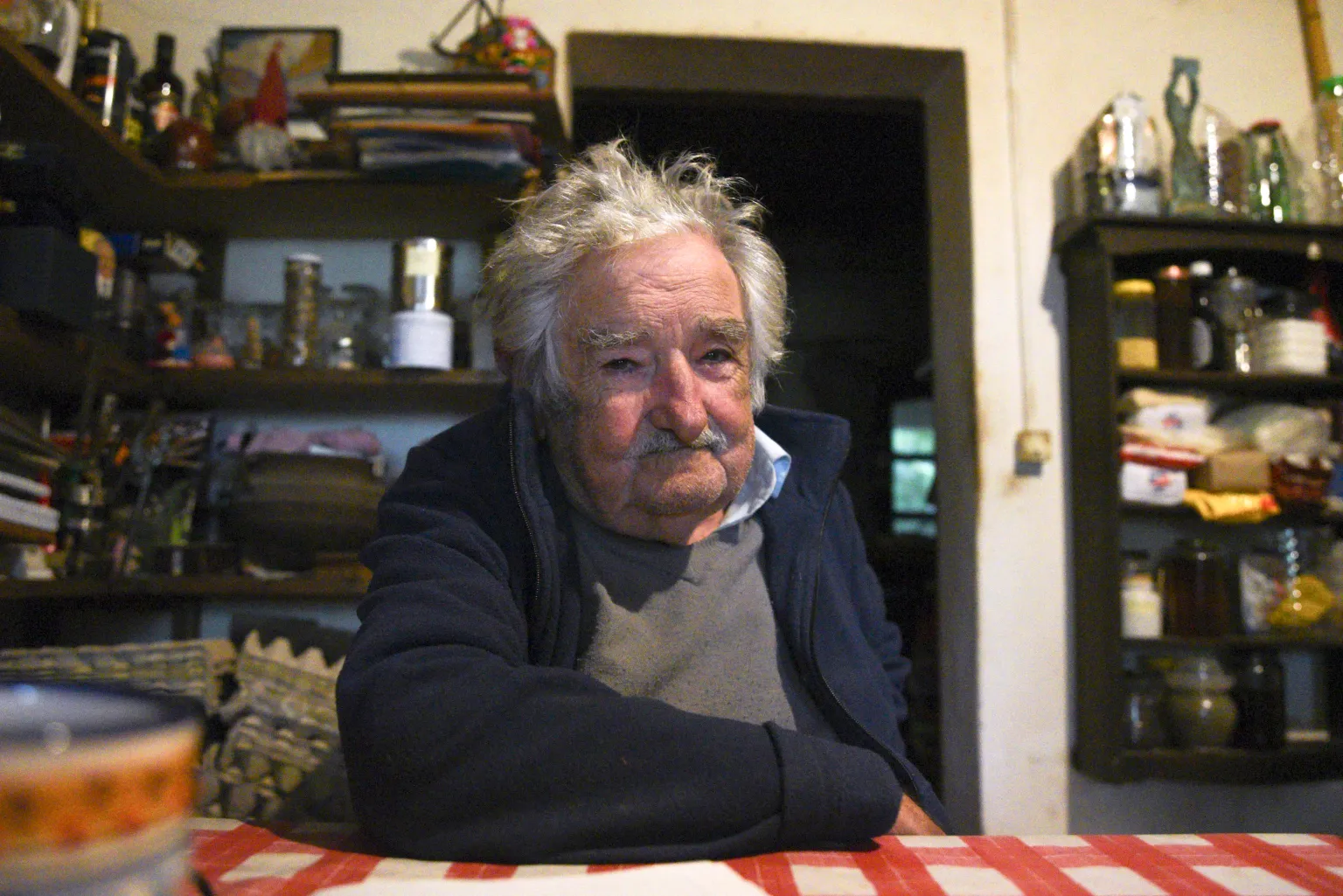International
Former Uruguayan President José Mujica, who has a gastrostomy, is operated on

The former president of Uruguay José Mujica was operated on this Saturday in the sanatorium where he was hospitalized, where he had a gatrostomy for feeding.
This was indicated in a press conference by his personal doctor, Raquel Pannone, who stressed that the procedure was carried out in the morning hours, its result was “excellent” and the former president is recovering accompanied by his wife, Lucía Topolansky.
“The situation, as I told you 48 hours ago, was to try to achieve oral feeding in the best conditions, with the right preparation. We tried to do it and the result was not entirely satisfactory,” said the doctor, who added that that led them to make the decision to climb a new step and do a gastrostomy for feeding.
What is the purpose of the intervention with former President Mujica?
“This gastrostomy allows us safe access for food and hydration, with a good flow and to be able to allow, while this happens, the esophagus can be repaired naturally. That’s what we bet on: to have it better nourished, well hydrated and give the esophagus time to fulfill the natural stages of recovery,” Pannone said.
He added that it is not known how long this process will take and that it will depend on its nature and evolution. He also added that when it ends, Mujica will return to a normal diet.
Meanwhile, the doctor explained, the former president will be fed with certain preparations or with foods with an adequate consistency.
“Progressively, we will continue to test oral tolerance and as soon as this is okay he will eat normally again,” Pannone reiterated, who added that Mujica will remain hospitalized for a few more days.
Boarding since Thursday
The former president who arrived this Thursday at a sanatorium in Montevideo, has been under rehydration due to the little liquid intake he was receiving.
This was explained that day by Pannone in a press conference in which he indicated that the former president has a fibrosis in the esophagus as a result of the radiotherapy treatment he received in that area, which generates difficulties in feeding.
“’Pepe’ is back in the sanatorium. The cause of the transfer to the sanatorium this time has to do with the fat that he was receiving very little liquid intake at home by oral route and he was not receiving enough food. That was the reason for moving it,” the doctor pointed out.
He added that he was tested and he began to be rehydrated intravenously.
Last week, the former president had already entered the sanatorium after having difficulties feeding himself due to the radiotherapy treatment he received months ago, as a result of a malignant tumor in the esophagus.
International
Dominican ‘False Hero’ Arrested for Faking Role in Nightclub Collapse That Killed 231

A man identified as Rafael Rosario Mota falsely claimed to have rescued 12 people from the collapse of the Jet Set nightclub in Santo Domingo—a tragedy that left 231 people dead—but he was never at the scene.
Intelligence agents in the Dominican Republic arrested the 32-year-old man for pretending to be a hero who saved lives during the catastrophic incident, authorities announced.
Rosario Mota had been charging for media interviews in which he falsely claimed to have pulled survivors from the rubble after the nightclub’s roof collapsed in the early hours of April 8, during a concert by merengue singer Rubby Pérez, who was among those killed.
“He was never at the scene of the tragedy,” the police stated. The arrest took place just after he finished another interview on a digital platform, where he repeated his fabricated story in exchange for money as part of a “media tour” filled with manipulated information and invented testimonies.
“False hero!” read a message shared on the police force’s Instagram account alongside a short video of the suspect, in which he apologized: “I did it because I was paid. I ask forgiveness from the public and the authorities.”
Central America
Nicaraguan Exiles to Mark 7th Anniversary of 2018 Protests with Global Commemorations

The Nicaraguan opposition in exile announced on Thursday that it will commemorate the seventh anniversary of the April 2018 protests against the government of President Daniel Ortega and his wife, Rosario Murillo, with events in Costa Rica, the United States, and several European countries.
The commemorative activities—which will call for justice for the victims, as well as freedom and democracy for Nicaragua—will include religious services, public forums, cultural fairs, and other public gatherings, according to official announcements.
In April 2018, thousands of Nicaraguans took to the streets to protest controversial reforms to the social security system. The government’s violent response quickly turned the demonstrations into a broader call for the resignation of President Ortega, who is now 79 and has been in power since 2007.
The protests resulted in at least 355 deaths, according to the Inter-American Commission on Human Rights (IACHR), although Nicaraguan organizations claim the toll is as high as 684. Ortega has acknowledged “more than 300” deaths and maintains the unrest was an attempted coup d’état.
International
Arsenal stun Real Madrid at the Bernabéu to reach Champions League semifinals

Arsenal enjoyed a “historic night” on Wednesday after defeating Real Madrid 2-1 at the Santiago Bernabéu, knocking them out of the Champions League quarterfinals, midfielder Declan Rice said.
“It’s such a special night for this club, a historic night for this club,” said Rice, who scored twice in the first leg in London, speaking to TNT Sports.
The English international was named Man of the Match in both legs — the 3-0 win in London and the second leg in Madrid.
“It’s amazing. I knew we were on an upward trajectory and we’ve done incredibly well in this competition. We deserve it and we have full confidence in our coach. Reaching the semifinals is unbelievable,” Rice added.
-

 International5 days ago
International5 days agoNightclub Collapse in Dominican Republic Claims 226 Lives
-

 International5 days ago
International5 days agoVenezuela accuses Guyana of “warlike intentions” after UK defense deal
-

 Central America3 days ago
Central America3 days agoHonduran Police Offer $135K for Tips Leading to the Arrest of Romeo Vásquez
-

 Central America3 days ago
Central America3 days agoPetro questions Ecuador’s vote, cites reports of military control and arrests
-

 International3 days ago
International3 days agoMPV Denounces Electoral Blockade as Secretary-General is Disqualified for May Elections
-

 International2 days ago
International2 days agoArsenal stun Real Madrid at the Bernabéu to reach Champions League semifinals
-

 International3 days ago
International3 days agoMaduro Plans Major Workers’ March on May 1st to Defend Venezuela’s Freedom
-

 International2 days ago
International2 days agoBogotá residents line up for yellow fever vaccine amid national alert
-

 International2 days ago
International2 days agoMexico refuses to restore ties with Ecuador while Noboa remains in office
-

 International2 days ago
International2 days agoDeSantis’ immigration crackdown sparks alarm in Venezuelan Communities in Doral
-

 International3 days ago
International3 days agoColombia: Search continues for missing limb of italian scientist found dismembered
-

 International14 hours ago
International14 hours agoDominican ‘False Hero’ Arrested for Faking Role in Nightclub Collapse That Killed 231
-

 Central America14 hours ago
Central America14 hours agoNicaraguan Exiles to Mark 7th Anniversary of 2018 Protests with Global Commemorations















